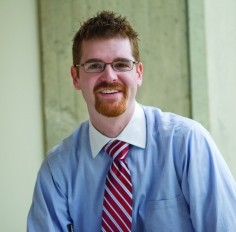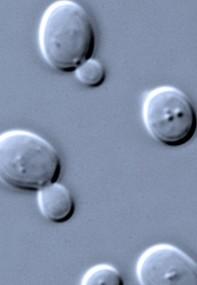
Popular Science
magazine has named MIT Assistant Professor of Chemical Engineering Christopher Love, 33, to its annual "Brilliant 10" list of top young scientists.Any researcher who had wanted to conduct multiple experiments on a single cell over time? Impossible-- the technology didn't exist. At the cellular level, there was only one view: the whole cell population. The single cell was out of reach-- that its behavior was unique and might be effecting surrounding cells was only conjecture.

So Christopher Love and his lab created techniques that enabled researchers to finally observe an individual cell--"take a picture of it, ask who it is." And watching the cell's behavior over time finally allowed science to solve many medical mysteries: immunity to HIV infection, accurately diagnosing deadly allergies, and improve drug production, making it less expensive. Popsci described his method:
He takes the equivalent of an ice-cube tray and fills each well with one or two living immune cells. Over the course of an hour, he blots the cells with a material that captures the chemicals they have released. Repeated over time, the process can identify the secretions and how they change.
Using his imprinting technique, Love documented that immunologists determining an HIV treatment's effectiveness were often looking at the wrong indicators.
He also found a new method of analyzing telltale markers that immune cells

release in the presence of a food allergen. Traditional tests looking for antibodies lead to many false positives, but his test screens an immune cell's allergic response for small proteins known as cytokines. This has lead to more accurate results.

In March he uncovered an overlooked property of yeast, which is used by many pharmaceutical companies to produce protein-based drugs like growth factors and antibodies. Love found that although laboratory yeast are genetically identical, the cells don't behave like it; certain yeast cells secrete large amounts of a desired compound, others make nothing at all. The finding could give drug companies a tool to bring down costs significantly.
His research reveals the cell's more nuanced behavior and has paved the way for significant therapeutic advances.



Comments
Wow!!. I'm really sure it’s not the favourite article on the topic but I deeply appreciate it.
It's nice to see a chemical engineer being recognized publicly. I think it'll certainly help in the direction improving public image of the profession.
We're in a new age of discovery and chemical engineers are riding that wave. Sooner or later the public will catch up.
This is simply outstanding work, much of what we Chemical Engineers do is considered Abstract or Esoteric by the collective standards of the “Public”, however the results of our work have a very tangible impact on the Public. We are like the Stage Crews that silently toil long hours on all the details to make the big things happen, where the results of our work become the show itself. Often times the show is enjoyed with little or no real appreciation of the Crews that made the show possible. The funny thing is, us ChE’s generally know this reality going into our profession and wouldn’t want it any other way, since it is scientific accomplishment that really drive our passions. Nice Work Chris, and thanks Kent for bring this "stage work" into the light. Rich
People don't realize it, but you're now creating the stage itself. Unfortunately we all live in two cultures. Pop culture does its best to ignore the power of science and scientists, portraying life primarily as a diversion. But the world is badly in need of transformation and once the denial ends, chemical engineers or, at the very least, the powerful tools they wield will be acknowledged. The era of the creator, the transformer is coming. Kent
Kent, You took my analogy one step further, I love it! "we are creating the stage itself". We were once told that "life is nothing but a stage", a stage we all get to act upon. Well, since life does not exist without Science or Chemistry for that matter, then it must be science that builds this stage. Cultures that value and reward scientific endeavor will indeed reap its incredible life improving benefits. This lesson has been taught in history over again, a lesson I hope our culture need not have to learn again. Rich